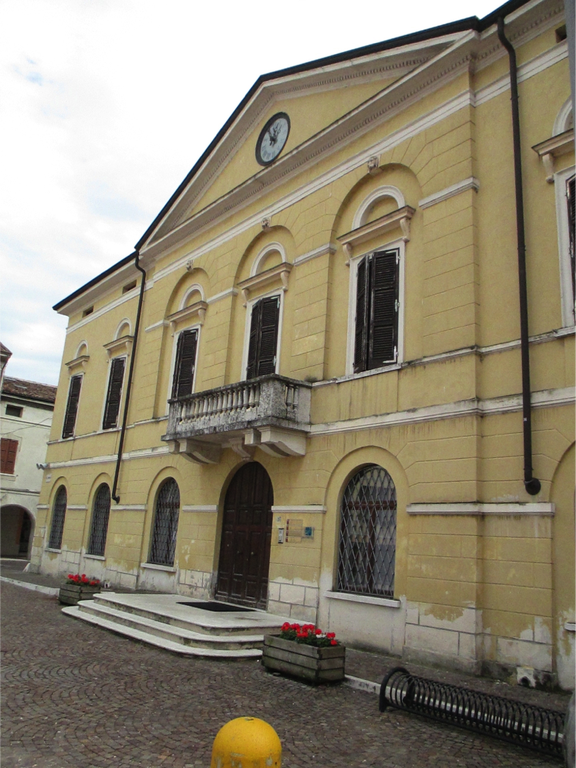IU Musicology Department’s Collectorship Program
Implemented at the invitation of and in collaboration with the city of Ostiglia, Italy, the Musicology research program permitted IU graduate students to work with the impressive collection of over 10,000 musical manuscripts and prints, mostly from the eighteenth and nineteenth centuries, hosted at the Greggiati Library. The program, entitled Musical Collectorship in Italy in the Eighteenth and Nineteenth Centuries: A Survey of the Greggiati Collection in Ostiglia and a Model of Electronic Research Tool, was broadly conceived to incorporate academic research and the development of a web site that will allow users to interrogate the data on musical collectorship. In its final form, the digital tool should be able to connect data from different collections and help reconstruct the dynamics and networks of musical collectorship. The project helped forge or renew connections among the city of Ostiglia, the Department of Musicology, the Center for the History of Music Theory and Literature (CHMTL), the Jacobs School of Music, the Office of the Vice President for Research, and the Office of the Vice President for International Affairs.
The teaching component of the project involved the training of graduate students in Codicology and Manuscript Description. Twenty students travelled to Ostiglia in the first four years of the program (2012-15) and learned about issues of cataloguing and the study of musical sources from Prof. Massimo Ossi and Prof. Giovanni Zanovello. In particular, the course focused on teaching students how to work with manuscripts not only as sources of music and theory, but also as material objects. CHMTL is currently working on the creation of an experimental digital platform to make the data accessible to interested scholars. The activity received a good deal of attention, both in Italy and in the USA. Italian local media (including Mantuan television stations) covered the project each year.
The class had also the opportunity to visit Italian cities and musical collections. Trips in the various years included Bologna, Venice, Mantua, Padua, and Verona. In addition to visits to monuments and gastronomic highlights, the group met Italian scholars like Alfredo Vitolo, a librarian at the Museo Internazionale della Musica di Bologna, who presented his research on the collection of Padre Martini, the eighteenth-century erudite who mentored Mozart in counterpoint. During the visit to Mantua they played the sixteenth-century organ of Santa Barbara, one of the churches in Italy with the most illustrious musical history.


